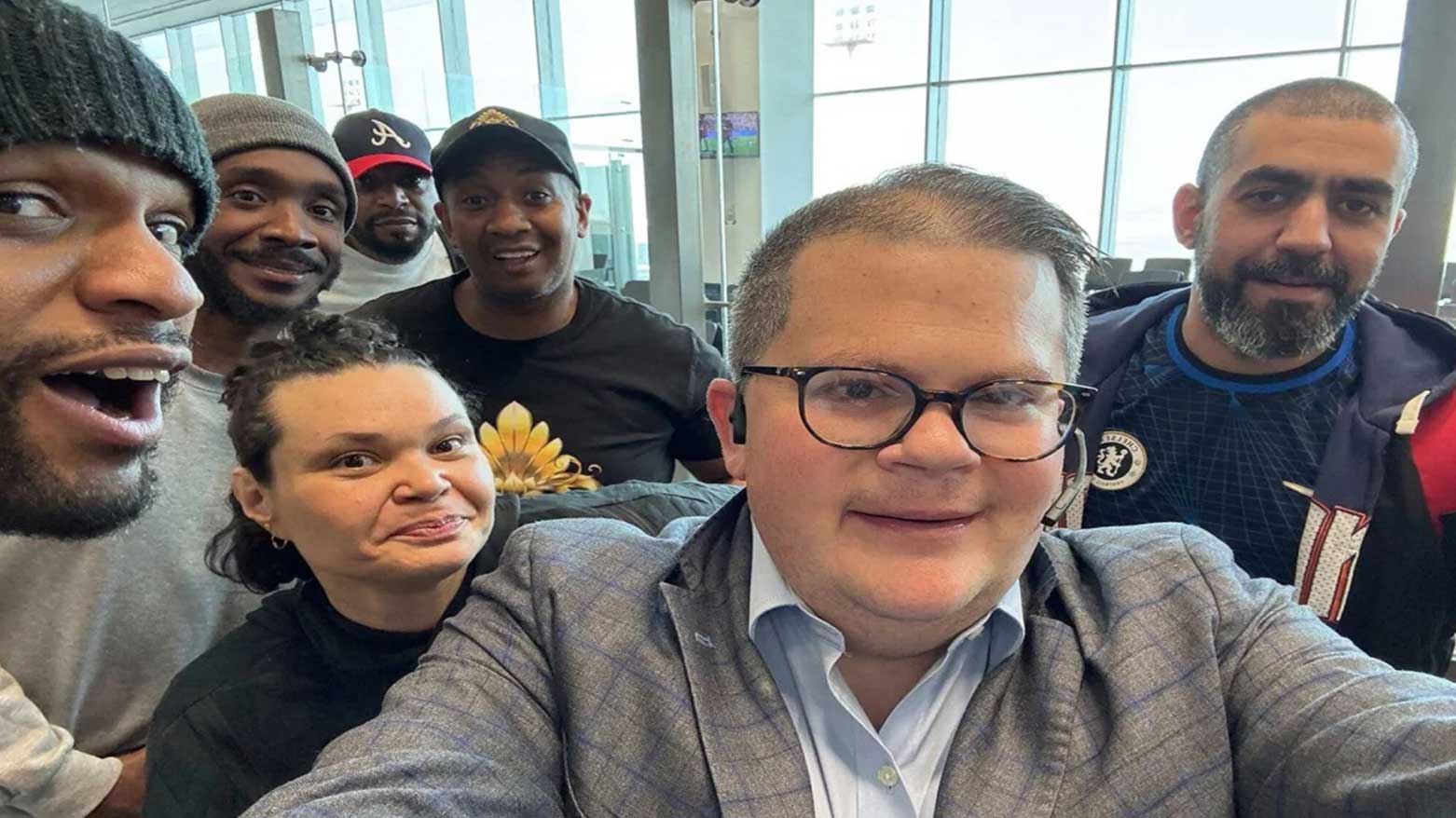Kuwait Frees Jailed Americans—A Victory for U.S. Diplomacy or a Strategic Move?
“These Americans were left in prison for years due to a misguided policy that had, before President Trump took office, effectively abandoned Americans abroad,” Jonathan Franks

ERBIL (Kurdistan24) - In a dramatic turn of events, Kuwait has released a group of American prisoners, including military veterans and contractors jailed for years on drug-related charges, in what is widely seen as a significant diplomatic gesture toward the United States. The Associated Press (AP) confirmed the development on Wednesday, citing a representative for the detainees.
The release follows a recent visit to the region by President Donald Trump's hostage affairs envoy, Adam Boehler, and comes as Washington continues efforts to secure the return of Americans detained abroad. Jonathan Franks, a consultant specializing in hostage and detainee cases, accompanied six of the freed Americans on a flight from Kuwait to New York. He praised Kuwait’s decision, calling it a "kind humanitarian gesture."
“My clients and their families are grateful to the Kuwaiti government for this act of goodwill,” Franks said in a statement. While the names of the released individuals were not immediately made public, he confirmed that additional Americans may soon be released.
A Diplomatic Gesture in a Longstanding Alliance
The Kuwaiti government has not officially acknowledged the release, and the State Department has yet to comment on the matter. However, the timing of the move is significant. Kuwait, a major non-NATO ally of the U.S., has maintained close military ties with Washington since the 1991 Gulf War, when American-led forces expelled Iraqi troops from the country. Today, approximately 13,500 U.S. troops are stationed at Kuwait’s Camp Arifjan and Ali al-Salem Air Base.
The release comes amid the holy month of Ramadan, a period when prisoner pardons are common across Muslim-majority nations. Yet, this case is distinct due to the political and legal context surrounding the detentions. Many of the American military contractors held in Kuwait have claimed wrongful imprisonment, alleging abusive treatment, fabricated charges, and unfair trials under the country’s strict anti-drug laws. Kuwait enforces a zero-tolerance policy on drug offenses, with penalties ranging from long prison sentences to the death penalty.
Trump Administration’s Renewed Focus on Detainees
The move also underscores the Trump administration’s renewed focus on securing the release of Americans imprisoned abroad. Since President Trump returned to the White House, his administration has already facilitated the release of American schoolteacher Marc Fogel from Russia in a prisoner swap and successfully negotiated the release of another U.S. citizen from Belarus.
While the Americans released from Kuwait had not been formally classified as “wrongfully detained” under U.S. policy, advocates argue that Washington must adopt a broader approach to bringing citizens home. Franks criticized previous policies that, in his view, neglected detainees who did not meet the strict criteria for wrongful detention.
“The sad reality is that these Americans were left in prison for years due to a misguided policy that had, before President Trump took office, effectively abandoned Americans abroad who hadn't been designated wrongfully detained,” Franks said. “These releases demonstrate what is achievable when the U.S. government prioritizes bringing Americans home.”
As the Trump administration continues to assert its influence on the world stage, this latest development serves as a reminder that diplomacy—whether driven by humanitarian concern or political strategy—remains a powerful tool in shaping international alliances.
Why Now? The Possible Motivations Behind Kuwait’s Decision
While framed as a humanitarian act, Kuwait’s decision to free the American detainees could be driven by a range of political motivations. The Gulf nation has faced increasing scrutiny over its judicial practices, and releasing these prisoners may be part of a broader effort to improve its international image and maintain strong ties with Washington.
Additionally, with Trump back in the White House, U.S. allies may be eager to realign themselves with his administration’s priorities. The move could be aimed at securing further security assurances, defense agreements, or economic cooperation in the wake of shifting geopolitical dynamics in the Middle East.
Lingering Questions and Future Implications
Despite the positive development, several questions remain unanswered. Kuwait’s silence on the matter suggests a desire to manage the diplomatic optics carefully, particularly given its strict legal stance on drug-related crimes. Additionally, the fate of other American detainees in the country remains uncertain, though sources indicate more releases could follow.
This case also raises broader concerns about the treatment of U.S. military contractors abroad and the legal protections available to them. While American troops stationed in Kuwait are largely shielded from local laws under defense agreements, contractors do not always enjoy the same level of protection.
As diplomatic efforts continue, the release of these Americans marks a critical moment in U.S.-Kuwait relations—one that could set a precedent for future negotiations involving detained Americans worldwide.